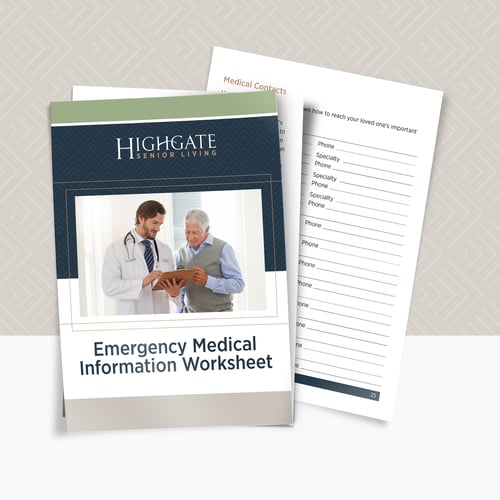Having your loved one’s medical information in one place makes it easier to be prepared — no matter what happens.
Take Rob, for instance, who slipped and fell getting out of the shower. His wife, Caroline, called the paramedics, but when they arrived, she couldn’t answer any of the questions the first responders were asking. Not only was she in shock, but she also couldn’t remember all the medications Rob was on or which hospital his primary care physician practiced.
Susan, on the other hand, keeps an emergency packet of medical information taped to her refrigerator door. When she started experiencing severe abdominal pain, her daughter Donna picked her up, drove to the emergency room, and handed the triage nurse the medical file she pulled from her mom’s refrigerator door. This allowed the treatment team to learn as much as possible about Susan and to speed up the emergency care.
This Emergency Medical Information Worksheet is intended to help you keep track of your loved one’s medical information so it can be shared with paramedics, emergency room staff, and urgent care clinicians if they develop a need for urgent medical care. Download it, print it, and fill it out. There are numerous blank spaces provided so you can personalize your file.
Once completed, provide copies to other family members so you can all be prepared no matter what happens. Also, keep a copy in a prominent location and make it easily identifiable. Remember to update it regularly.
By organizing your loved one’s most important medical details in one place, you one won’t have to scramble to find it or remember it during a crisis.

